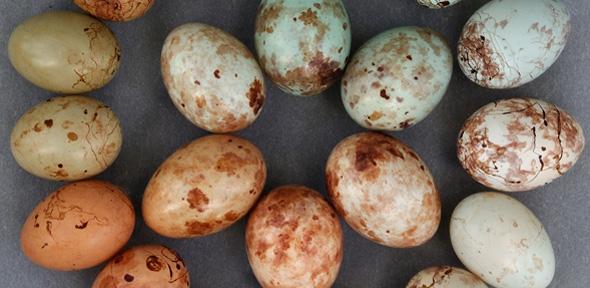
We are interested in the evolution and ecology of species interactions, particularly parasitism and mutualism. We focus mainly on birds, at long-term study sites in Zambia and Mozambique, where our work involves close cooperation with rural communities. Most of our work is inspired by field observations and integrates field experiments with genetics, sensory ecology, and comparative analyses. Our research is supported primarily by the European Research Council, the BBSRC, and The Leverhulme Trust.
Current research topics include:
• Coevolutionary arms races between brood-parasitic birds and their hosts (see AfricanCuckoos.com)
• Evolutionary genetics of host egg signatures and their parasitic mimics (see AfricanCuckoos.com)
• Mutualism between honeyguides and the human honey-hunters whom they lead to bees’ nests (see AfricanHoneyguides.com)
Current and past projects have also involved bird-plant mutualism, nest camouflage and other anti-predator adaptations, wintering ecology of migratory birds, effects of climate change on tropical birds, and conservation ecology of threatened bird species in eastern Africa.
Claire Spottiswoode is based jointly in the Department of Zoology and at the FitzPatrick Institute of African Ornithology at the University of Cape Town in South Africa, where some of our group working on these projects are based.
Selected Publications
Coetzee, A., Seymour, C.L. & Spottiswoode, C.N. (2021) Facilitation and competition shape a geographical mosaic of flower colour polymorphisms. Functional Ecology https://doi.org/10.1111/1365-2435.13851
Jamie, G.A., Van Belleghem, S., Hogan, B., Hamama, S., Moya, C., Troscianko, J., Stoddard, M.C., Kilner, R.M. & Spottiswoode, C.N. (2020) Multimodal mimicry of hosts in a radiation of parasitic finches. Evolution 74: 2526-2538. https://doi.org/10.1111/evo.14057
Spottiswoode, C.N. & Busch, R. (2019) Vive la difference! Self/non-self recognition and the evolution of signature polymorphism in arms races with parasites. Philosophical Transactions of the Royal Society B 374: 20180206. https://doi.org/10.1098/rstb.2018.0206
Jamie, G.A. (2017) Signals, cues and the nature of mimicry. Proceedings of the Royal Society of London B 284:20162080. http://dx.doi.org/10.1098/rspb.2016.2080
Stevens, M., Troscianko, J., Wilson-Aggarwal, J.K. & Spottiswoode, C.N. (2017) Improvement of individual camouflage through background choice in ground-nesting birds. Nature Ecology & Evolution 1: 1325-1333. doi: 10.1038/s41559-017-0256-x
Spottiswoode, C.N., Begg, K.S. & Begg, C.M. (2016) Reciprocal signaling in honeyguide-human mutualism. Science 353: 387-389. http://dx.doi.org/10.1126/science.aaf4885
Caves, E.M., Stevens, M., Iversen, E. & Spottiswoode, C.N. (2015) Hosts of brood parasites have evolved egg signatures with elevated information content. Proceedings of the Royal Society of London B 282: 20150598. http://dx.doi.org/10.1098/rspb.2015.0598
Spottiswoode, C.N., Stryjewski, K.F., Quader, S., Colebrook-Robjent, J.F.R. & Sorenson, M.D. (2011) Ancient host-specificity within a single species of brood parasitic bird. Proceedings of the National Academy of Sciences of the USA 108, 17738-17742. http://dx.doi.org/10.1073/pnas.1109630108
Spottiswoode, C.N. & Stevens, M. (2010) Visual modeling shows that avian host parents use multiple visual cues in rejecting parasitic eggs. Proceedings of the National Academy of Sciences of the USA 107: 8672-8676. http://dx.doi.org/10.1073/pnas.0910486107
